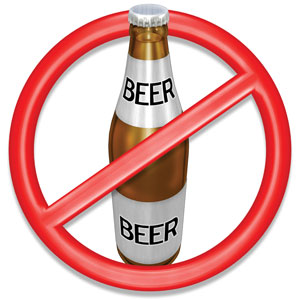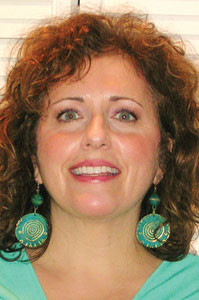 Visit the SADD website (Students Against Destructive Decisions) and you’ll find a staggering number of statistics regarding teenage drinking. One statistic states that more than half (58 percent) of high school seniors report they’ve been drunk at least once in their life. About 20 percent of eighth-graders report having been drunk at least once in their life.
Visit the SADD website (Students Against Destructive Decisions) and you’ll find a staggering number of statistics regarding teenage drinking. One statistic states that more than half (58 percent) of high school seniors report they’ve been drunk at least once in their life. About 20 percent of eighth-graders report having been drunk at least once in their life.
Recently some Jewish parents got the call to come pick up their teenage children, all either 15 or 16 years old, from a local youth group event. Susie Hurst, who wears many hats for Jewish Family Services including being the adolescent specialist for C.H.A.I. (Channeling Healthy Adolescent Interaction), said underage drinking isn’t a new problem in the Jewish community.
“I would be absolutely shocked if a parent of a high-schooler didn’t know drinking was going on,” Hurst said.
As the statistics show, many people aren’t aware just how young the drinking is starting. Hurst estimates it begins in middle school.
“Some of the statistics I’ve seen is that the average age when kids first try alcohol is about 12,” she said, noting it often begins at parties.
Begin discussions early
Hurst believes parents should begin talking about the dangers of drinking as soon as middle school begins, or even sooner.
“That’s when they need to know that even just a few drinks begins to affect judgment, including getting involved sexually, damage to property and physical injuries,” she said.
But once parents learn their teen may be drinking, Hurst advises them to avoid lecturing.
 “That might make you feel better, but they won’t listen to it,” Hurst said.
“That might make you feel better, but they won’t listen to it,” Hurst said.
Asking open-ended question is a good way to start a conversation, according to Hurst.
“Instead of interrogating, ask your teen if the people at the party are the people he or she wants to hang out with even though there was drinking,” she said.
Hurst said the most important influence a parent has with a teen is the fact that there is an open-door policy where anything, even if it’s uncomfortable, can be discussed.
“They need to know that they can come and talk to you and know that they won’t be screamed and lectured out. When screaming and lecturing happens, they just shut down. The poor behavior will happen, you just won’t know about it,” she said.
“Even though you prefer those behaviors aren’t happening, at least if you know about it, it gives you the opportunity to have the discussions and find out what’s going on. Our major goal as parents is to keep them safe,” she continued.
It’s important, Hurst said, for teens to know that they can be honest with their parents about anything.
“Make sure they feel that they can talk to you without being punished,” she continued. “Let’s say your teen told you Janey Doe was drinking at the party. If you then say you’re going to call Janey’s mother, your teen will never confide in you again. You need to understand the importance of them being honest with you and not punishing them for it.”
Hurst said parents need to be aware that drinking is happening at parties, and they should discuss that with their teens in an open, honest way.
“You don’t want to push them in a way that the teen would have to be deceitful,” Hurst said. “I would ask them, when you go to these parties are they cool about kids that don’t want to drink or is it uncomfortable for you?”
Hurst said it’s important for teens to trust their intuition, and if they feel the least bit uncomfortable or feel unsafe, then they should call you to come pick them up.
“Some families create a code word that means “come get me now” so that the teen on the other end of the line doesn’t have to go into details,” she said.
Keep an open mind
If parents get the call to pick up a teens from an event because of alcohol use, Hurst said the first thing to do is to make sure the teen has not been unjustly accused.
“A parent should always say explain to me what happened” and then say “I need you to be honest with me,” Hurst said.
“Really give your teen a chance to explain what happened and listen to their side of the story,” Hurst said. “They need to realize that you aren’t going to attack them. And you don’t want to sacrifice the relationship you have with your teen by being unfair or overreacting.”
If a teen admits to drinking, Hurst said it’s best to continue the conversation in the morning. Then Hurst suggests that the parents and teen discuss exactly what happened and why such behavior is a problem for the parents. She said to make it clear that the teen has gone against the family’s rules and expectations about drinking.
She said hopefully before this happened, parents have already had the conversation with the teen explaining “we know drinking goes on, but we prefer that you choose not to drink.” Hurst said statistics are showing that those types of conversations between parents and teens “really has an impact and at least delays drinking until an older age.”
After that, Hurst said to explain to the teen that he or she will have to earn the parents’ trust again. One of the ways that will happen is by the parents taking steps such as calling the adults in charge of the next party as well as making sure the teen checks in with the parents from the host’s land line, not their personal cell phone.
Hurst said it’s important to let the teen know that he or she can earn back privileges and trust.
She notes that not all infractions are the same and that a different, stricter tone may need to be taken if this is a teen’s second or third offense. On the other hand, there must be a zero tolerance regarding drinking and driving. Not only are there serious legal ramifications but the end result can be deadly.
Hurst also wants it known that parents shouldn’t assume there will not be alcohol or other illegal substances because the party is in a “nice neighborhood” or being hosted by a Jewish family.
“That doesn’t have anything to do with anything,” Hurst said.